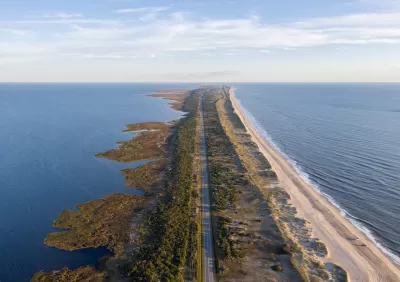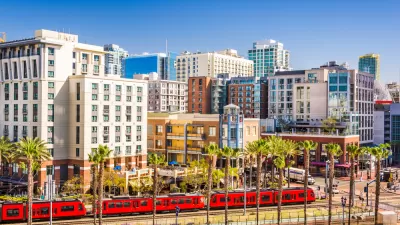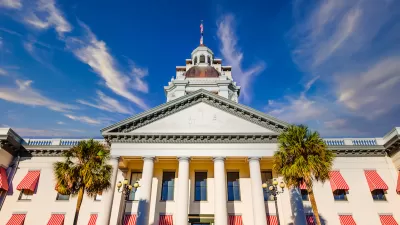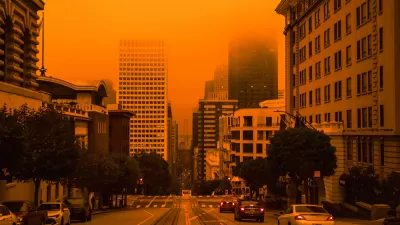Cities in the South are facing a multitude of climate change impacts, but many have been slow to respond to the growing threats.

James Bruggers writes about a collaborative effort between InsideClimate News and newsrooms in seven Southeastern states called Caught Off Guard, a series which looks at climate change and the challenges this part of the country is facing. "The region lags behind others in renewable electricity and faces some of the biggest global warming threats in the nation."
Charleston, South Carolina, for example, is preparing for the effects of climate change, but decreasing emissions has not been a priority. "Charleston Mayor John Tecklenburg two years ago pledged to cut his city’s carbon dioxide emissions 80 percent by 2050. But the city government has no solar panels on its buildings, no city vehicles that run on electric power or cleaner fuels, and it still hasn’t pushed its electric utility, Dominion Energy, to supply more renewable electricity," says Bruggers.
Bruggers describes the varying commitments different cities have made to address climate change. Some cities, however, have been hampered by utility companies affiliated with the coal industry or state legislatures not willing to cooperate.
In other cases, cities have resisted taking any action at all, notes Bruggers. "In Savannah, Georgia, no one was routinely counting greenhouse gas emissions from the nation’s fourth busiest seaport. The Port of Savannah has no emission reduction goals because, officials said, it is not required."
FULL STORY: Caught Off Guard: South struggles with climate change

Planetizen Federal Action Tracker
A weekly monitor of how Trump’s orders and actions are impacting planners and planning in America.

Maui's Vacation Rental Debate Turns Ugly
Verbal attacks, misinformation campaigns and fistfights plague a high-stakes debate to convert thousands of vacation rentals into long-term housing.

San Francisco Suspends Traffic Calming Amidst Record Deaths
Citing “a challenging fiscal landscape,” the city will cease the program on the heels of 42 traffic deaths, including 24 pedestrians.

Amtrak Rolls Out New Orleans to Alabama “Mardi Gras” Train
The new service will operate morning and evening departures between Mobile and New Orleans.

The Subversive Car-Free Guide to Trump's Great American Road Trip
Car-free ways to access Chicagoland’s best tourist attractions.

San Antonio and Austin are Fusing Into one Massive Megaregion
The region spanning the two central Texas cities is growing fast, posing challenges for local infrastructure and water supplies.
Urban Design for Planners 1: Software Tools
This six-course series explores essential urban design concepts using open source software and equips planners with the tools they need to participate fully in the urban design process.
Planning for Universal Design
Learn the tools for implementing Universal Design in planning regulations.
Heyer Gruel & Associates PA
JM Goldson LLC
Custer County Colorado
City of Camden Redevelopment Agency
City of Astoria
Transportation Research & Education Center (TREC) at Portland State University
Jefferson Parish Government
Camden Redevelopment Agency
City of Claremont





























